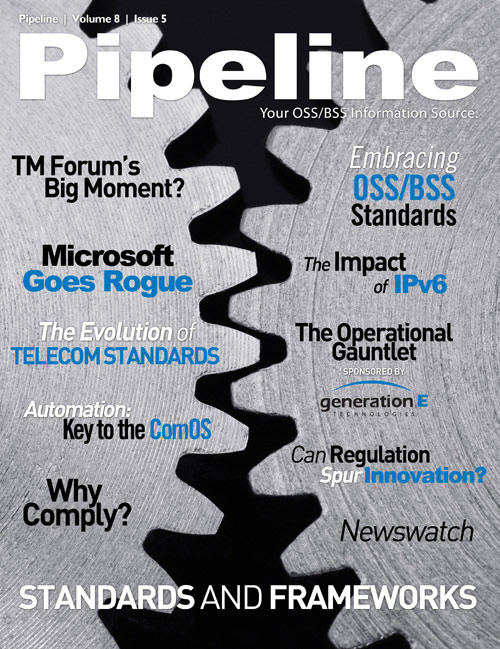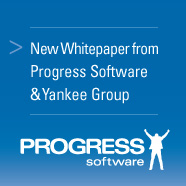The BSS/OSS Impact
We know from membership lists which carriers are actively participating with which SDOs. But what about the suppliers—how important are these standards for operational and business support systems vendors? I asked John Wilmes, Chief Technical Architect, communications sector, Progress Software, for some insight. “Standards compliance is most important where it is required for basic functionality or interoperation, e.g. networking,” explained Wilmes. “In B/OSS, it is mainly important to the extent that individual service providers make it an internal or external requirement. But in B/OSS, we are really talking about conformance rather than compliance.”
Furthermore, it isn't automatically true that if a service provider is compliant to the latest DOCSIS standard, therefore all of its vendors are compliant as well. “A service provider’s internal adoption of standards can be a separate issue from requiring vendors to comply, and often serves different goals with different timelines,” said Mr. Wilmes. This complicates our task, especially since, as Wilmes continued, “For competitive reasons, some service providers won’t discuss critical advantages they gain from standards, so we may never have a complete picture of adoption levels.”
So who's driving the most important standards? Again, John Wilmes:
Each standards organization has at least one area that they control and at least one area where they overlap with others. Most of them are making much more of an effort lately to work together strategically, because member companies are demanding that their contributions be used as efficiently as possible. This is leading to proposals for various kinds of standards federation, particularly for information models. Three of the most important bodies right now are TM Forum, itSMF and DMTF, because of the convergence of IT operations with B/OSS in particular and with service-based enterprises in general. The effect of this convergence is now becoming apparent and is reflected in standards initiatives such as eTOM-ITIL integration.
Andrew Lee, VP of Marketing, OSSera, Inc., also sees standards as key enablers of business transformation initiatives that are so popular today. “Standards provide a common language for software providers to communicate with carriers and other partner solution providers,” said Lee. “Without this common language, solutions become decoupled, overlap, and form redundant silos, which do not unify the end-to-end processes flow for true business transformation and automation.”


So, Who’s Compliant?
Some companies, like Oracle, are so massive, touch so many parts of the overall IT space, and evolve in so many directions each week that an investigation into each and every standard they comply with could be infinite. Many other vendors just indicate that they are compliant with “industry-accepted interoperability standards.” According to numerous vendor sources contacted for this article, there are many reasons why collecting definitive data on a vendors’ standard's compliance is a difficult task: some of this data is protected for competitive reasons; standards adoption and compliance changes rapidly; and different carriers require different standards.
When a Standard is not Standard
The vendor community must exhibit conformance to a service provider's internally adopted standard in order to win the business, but not everyone agrees on which standards are best. And some standards that are trumpeted by vendors just don't register on the continuum of importance in the same way for carriers.
Notably, while researching this article, I found most vendors very eager to talk about TMF standards and frameworks, yet heard and read very little from communications service providers (CSPs) about the relevancy of TMF standards compliance. The TMF seems well poised to be the de facto SDO as it relates to the development of OSS and BSS standards, but does anyone other than the vendor community care?










